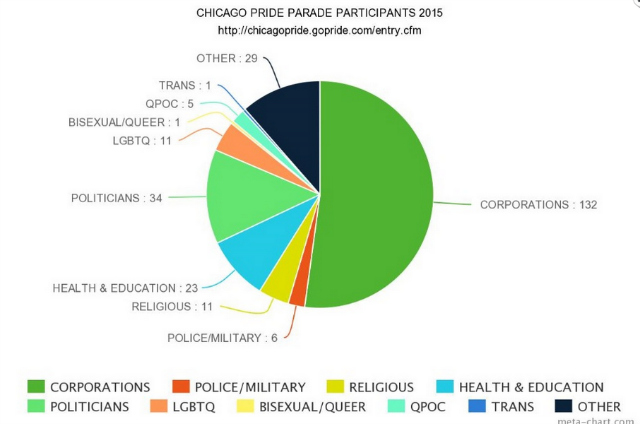
Many would call this progress. Others might decry the de-gaying of gay pride.
This trend has been going on for years, and not just in Chicago, and is likely to accelerate in the wake of the SCOTUS ruling in favor of same-sex marriages nationwide.
Some parade-goers have been complaining for years that Chicago’s pride festivities have gone corporate, and in the process turned into a commercialized spectacle and yet another excuse for straight people to day drink in the streets. Some LGBTQ revelers have simply chosen to stay home from the parade in response; others have turned to the growing Chicago Dyke March for a more indie alternative and still others have opted to bring their displeasure to the parade itself, as a group of #BlackLivesMatter protesters did last week, with a die-in style protest that brought the parade to a halt.
To test the theory, Illinois-resident Riley Kollaritsch crunched the numbers of parade participants, listed on the parade’s website, and graphed them with a pie chart by organization type.
Kollaritsch, 27, a writer and creator of the website Project Queer, found that corporate-representation did appear to surpass LGBTQ groups at this year’s parade—several times over. His graph shows there were 132 floats or parade slots held by corporations, compared to 11 LGBTQ groups, 1 bisexual group, 1 trans group and 5 groups related to queer people of color.
So, what does this mean for the future of the LGBT movement, which has not, contrary to popular belief “made it” after gaining marriage equality? Will greater acceptance by society – and coveting by marketers – mean greater assimilation into the mainstream? Will LGBT become “boring”? Will gayborhoods go away (as they’ve started to do)?
